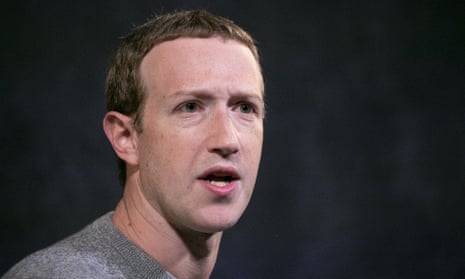Pressure from Facebook staff is continuing to mount on Mark Zuckerberg over his policies towards posts by Donald Trump, with moderators joining those criticising their boss for his stance.
The moderators penned an open letter to their colleagues in support of virtual walkouts that have broken out at the company, after Zuckerberg refused to take down posts by Trump that many believed breached the site’s policies on incitement of violence.
“We would walk out with you – if Facebook would allow it,” the moderators write. In their statement, all the company’s currently employed moderators remained anonymous, highlighting the precarious nature of their employment, which is subcontracted out through third parties.
“As outsourced contractors, non-disclosure agreements deter us from speaking openly about what we do and witness for most of our waking hours. Safety and data protection are important, but so is a healthy debate about what happens at Facebook.
“We can’t walk out, but we cannot stay silent … Facebook can do better,” the letter continues. “We need to express that Mr Zuckerberg’s words about personal dismay caused by Trump’s ‘looting and shooting’ rhetoric are not enough. The benefit of the doubt this politician is being given as a user, even with such a large platform, is unparalleled – the attempt to retroactively place his words behind the context of other posts actually has had effect of putting it on an isolated pedestal. This may be the ultimate exhibit of white exceptionality and further legitimisation of state brutality we have witnessed in the last weeks.”
The precariousness of their employment situation has even limited the ability of the moderators to put together a statement of support. “We are so alienated, even more with working from home,” one currently employed moderator told the Guardian. They, and a colleague, both asked to speak anonymously for fear that they would lose their jobs for breaking a non-disclosure agreement. “We are not able to speak freely because we communicate mainly on the company channels. It’s really tricky to even talk about it, to find someone and ask if they want to sign this sort of statement.”
The letter was co-ordinated by the legal nonprofit Foxglove, whose co-founder Cori Crider said: “Zuckerberg could do so much more to make his platform safe and equal, and the real experts in that are the moderators themselves – people who clear the hate speech and violence off Facebook day in and day out. But their contracts are so precarious it’s almost impossible for them to organise, or to speak up the way employees can. The Google walkout showed massive solidarity with Google’s precarious contract workers; this is a golden opportunity for Facebook staff to follow suit.”
The walkouts began on 1 June, as dissatisfaction within Facebook spilled out into the public sphere. Employees took to Twitter to state their opposition to Zuckerberg’s personal decision to take no action against Trump for a post published amid unrest in Minneapolis that said “when the looting starts, the shooting starts”. Twitter hid Trump’s post and added a warning, but Zuckerberg decided to leave the post intact.
Employees then staged a virtual walkout that was quickly endorsed by the company as an act of protest. “We encourage employees to speak openly when they disagree with leadership,” a Facebook spokesperson said at the time.
After the walkouts, pressure mounted: employees resigned as activist leaders condemned Zuckerberg for “setting a very dangerous precedent”, and more than 140 scientists directly funded by the Facebook founder’s personal charity called on him to take action over the weekend. On Saturday, Zuckerberg made another public statement, promising to “review potential options” for how to intervene.
As well as expressing general support for their directly employed colleagues, the moderators wanted to highlight the direct effects racism and police brutality has on their work. “We are definitely seeing more difficult content in our [moderation] queues recently,” one told the Guardian. “We are seeing a lot of police brutality – the images we are seeing from the US are just terrible. My colleague told me they are quitting the queues today because they saw three videos from the protests in a row and they can’t handle it.
“And we’re also seeing an increase in hate speech and racism, not only in our queues but also amongst ourselves. I have heard a few people, who I would have never expected, express racist opinions – this work is impacting our attitudes and our views.”
The moderators’ letter ends with a plea to Zuckerberg “and the rest of Facebook management to reconsider this decision [to take no action against] Donald Trump, to listen and honour the voices of its black employees and users.
“To the employees themselves – solidarity. Let’s mourn. Let’s organize. Let’s unionize. #BlackLivesMatter”
